Prosecutors Say Matej Periš's Death Not Due to Violence, Toxicology Report Published
ZAGREB, 21 June 2022 - The death of Croatian national Matej Periš was not due to violence or a crime but toxicology analyses have revealed the presence of toxic concentrations of amphetamine, ethyl alcohol and cocaine, Belgrade media quoted local prosecutors as saying on Tuesday.
The prosecutorial authorities said they issued the statement on the cause of death of the 27-year-old native of Split considering the circumstances of his disappearance in Belgrade in the night between 30 and 31 December 2021 until the discovery of his body in the Danube River in Belgrade on 18 May 2022.
The medical report was made by three forensic pathologists.
Periš went missing after leaving the Gotik night club in the Serbian capital in the night between 30 and 31 December 2021.
He had arrived in Belgrade with his friends for New Year's Eve and was last seen on footage from surveillance cameras, running in the streets of Belgrade.
For more news about Croatia, click here.
PM: Unfair to Set Conditions for Finland's NATO Membership
ZAGREB, 21 June 2022 - It is unfair and incorrect to set conditions for Sweden and Finland's NATO membership, Prime Minister Andrej Plenković said on Tuesday after a meeting with his Finnish counterpart Sanna Marin, expressing the government's support for Finland and Sweden's NATO membership bid.
"The position of the Croatian government and parliamentary majority has been continually clear and firm - we support Finland's ambition and believe that, if that is what our EU partner wants, its choice should be respected and supported," Plenković said at a news conference he held with the visiting Finnish PM.
"We believe that at this moment NATO membership is the security umbrella both Finland and Sweden want," he added.
The prime minister underscored that his government would advocate for the protection of the rights of BiH Croats and Bosnia and Herzegovina's European path, but without unfairly making Sweden and Finland's NATO membership conditional on those efforts.
Our task is to explain the status of Croats in Bosnia and Herzegovina to Finland's and Sweden's prime ministers and win their support for correcting the injustices, and not to call their choice into question, Plenković added.
Without naming President Zoran Milanović, the prime minister thus criticised his insistence to make Finland and Sweden's NATO entry conditional on the reform of Bosnia and Herzegovina's election law. Finland and Sweden have applied for NATO membership in response to the Russian invasion of Ukraine, which started on 24 February.
Earlier on Tuesday, Finnish Prime Minister Sanna Marin met with President Milanović, who told her that in principle, he was not against Finland's NATO entry but at the same time pointed out the difficult status of Croats in Bosnia and Herzegovina and the security problems Croatia is faced with due to lack of stability in BiH.
Marin said that she had a good meeting with Milanović, that his position was very clear and that he did not have any problem with Finland and Sweden joining NATO, adding that she appreciated Croatia's support for Finland's NATO membership.
There is no closer relationship than membership in the same defence alliance and readiness to defend one another unconditionally, Marin said.
Finland and Sweden's NATO membership bid has been met with opposition from Turkey, which says that Helsinki and Stockholm support Kurdish militants and have imposed an arms embargo on Turkey.
Marin expressed optimism at the press conference in Zagreb.
She said that she believed that NATO would send a strong message of unity at a summit in Madrid next week, stressing that Finland and Sweden would make NATO stronger.
The Finnish prime minister also said that Helsinki supported Croatia's membership in the Schengen Area and the euro area.
Finnish PM does not express position on BiH's candidate status
Croatia is not alone in warning about the unjust neglect of Western Balkan countries' EU accession, with Slovenia and Austria especially pointing it out.
Slovenian foreign minister Tanja Fajon said Slovenia would request at the next EU summit that Bosnia and Herzegovina be awarded candidate status, after the Commission last week proposed that Ukraine and Moldova be given EU candidate status.
Plenković said that regardless of the latest initiatives from Austria and Slovenia, if there was one country that supported Bosnia and Herzegovina's candidate status and European path, it was Croatia.
He recalled that Bosnia and Herzegovina applied for EU membership when HDZ BiH leader Dragan Čović was BiH Presidency Chairman.
Plenković underscored the importance of amendment of the country's election law for democracy and for the equality of its constituent peoples.
Asked about Finland's attitude towards conferring candidate status on Bosnia and Herzegovina, Marin said Finland had not adopted a position yet but that it had a long history of supporting EU enlargement.
It is important to seriously consider all issues that are important to member states, she said.
For more, check out our politics section.
2022 FINA World Championships: Croatia and Greece Draw 8:8 in Game 1
June 21, 2022 - Croatia and Greece finished 8:8 in the first match of the 2022 FINA World Championships in Hungary.
The Croatia water polo team opened their performance at the 2022 FINA World Championships in Hungary tonight against Greece. Croatia kicked off the competition with seven new names on the team.
The 2022 World Championship is Croatia's 13th appearance since Croatian independence. Croatia has won 7 medals from the last 12 World Championships, sharing second place with Italy and Spain, which are significantly older countries. Hungary is the best with 11 medals won.
Ivica Tucaks' team first faced the current Olympic silver medalist, Greece. Croatia also plays against Germany and Japan in Debrecen.
The winner of each group will advance directly to the quarterfinals, while the second and third-placed national teams play the round of 16.
Match Report
Croatia won the sprint but was unsuccessful in its first attack to get a goal. Greece went up 1:0 with 6:39 on the clock.
Croatia's shot was blocked in the next attack and Zuvela shot over the post to keep Greece ahead.
Russian-born Kharkov equalized for Croatia at 1:1 with 5:05 to go in the first quarter. Greece went ahead 2:1 in the next attack. Vukicevic missed in Croatia's next attack.
Greece went up to 3:1 with 3:11 to go in the first quarter. Both of Croatia's shots were blocked in the next play.
Greece made it 4:1 with 15 seconds to go, which is how the first quarter ended.
Greece hit the post to open the second quarter which was lucky for Croatia, but Greece's defense was not kind to Croatia's next attack.
Zuvela finally scored for 4:2 with 4:48 to go in the second quarter and Buric made it 4:3 with 4:02 to go!
Kharkov made it 5:5 for Croatia with 1:47 to go, which is how the match went into halftime.
Croatia was unable to score in their first attack of the third quarter, and Greece retook the lead at 6:5 with 5:59 to go.
Kragic scored brilliantly for 6:6 with 3:45 on the clock and goalkeeper Bijac stopped Greece's next attack.
Greece retook the lead at 7:6 with 1:43 left and Croatia was unable to score in the following attack, ending the third quarter 7:6 for Greece.
Four minutes into the final quarter and neither team had scored. Zuvela finally equalized for 7:7 with 3:48 left in the match.
Greece scored for 8:7 with 3:08 to go but Basic scored for 8:8 with 1:55 on the clock!
Greece hit the post and Croatia missed the goal with less than a minute left. Greece missed with 0:26 left, giving Croatia the attack and chance to win, but was unable to score. The match ended 8:8.
For more, make sure to check out our dedicated sports section.
Education Minister Says Extremely Difficult School Year Successfully Completed
ZAGREB, 21 June 2022 - Science and Education Minister Radovan Fuchs on Tuesday congratulated pupils, teachers, head teachers, Ministry and local government officials on the successful completion of the school year, the first two-thirds of which, he said, were extremely difficult due to the pandemic and earthquake.
The minister also expressed hope that the next year would pass without too much stress, the pandemic, and other difficulties.
Addressing the press after a government session, the minister added that according to World Health Organisation surveys, Croatia had the lowest number of days of online classes in the 2021/2022 school year.
Fuchs said that this year, national exams had been conducted for the first time in the eighth grade in 80 primary schools, providing insight into what should be done next.
Next year, all eighth grades in Croatia will sit for the national exam. The minister pointed out those exams would not be graded, since they are intended for the evaluation of the system and would be used to improve educational facilities and as guidelines for teacher training colleges.
For more, check out our politics section.
2021 Sees Highest Crime Resolution Rate
ZAGREB, 21 June 2022 - The crime resolution rate in Croatia in 2021 was the highest since the country declared independence, at 73.1%, shows a report on police work, adopted at a government session on Tuesday.
The report contains information on police results in fighting and preventing crime, and Minister of the Interior Davor Božinović said that the number of property-related crimes dropped by 4.1% in 2021, continuing on years of positive trends regarding crimes that have the biggest effect on citizens' subjective feeling of safety.
The number of cases of grand theft in 2021 was the lowest in the past 10 years, as was the number of burglaries, while the number of cases of grand theft auto and larceny was the lowest in the last 20 years, said the minister.
He added that there were 30 murder cases in 2021, a drop of 16.7% compared to 2020. The year 2021 was the fifth year to see a decrease in the number of murder cases.
Compared to 2020, the police reported 69.5% more corruption-related crimes and 46.1% more perpetrators.
The number of organised crime cases investigated was up by 11.6%.
A total of 100 war crimes were reported, twice as many as in 2020, and the quantity of drugs seized was 7.5% greater than in 2020.
The number of illegal border crossings dropped by 40.18%, while the number of reported cases of people smuggling grew by 37.1%, Božinović said.
Despite the increase in road traffic volume in comparison to 2020, 2021 was the second consecutive year with the lowest number of road fatalities, 292.
For more, check out our politics section.
Gov't Rejects Motion for Discussion on Vote of No Confidence in Health Minister
ZAGREB, 21 June 2022 - The Croatian government on Tuesday sent an opinion to the parliament proposing that it should reject a motion by 32 opposition MPs to discuss giving Health Minister Vili Beroš a vote of no confidence.
In its opinion the government comments on allegations from the motion, describing them as unfounded and noting that there was no ground to vote no confidence in the health minister.
The government also sent the parliament a final bill on cultural councils and on the financing of public needs in culture, which envisages combining the laws on cultural councils, financing of public needs in culture and management of public institutions in culture in a single law to simplify and more efficiently regulate the area in question.
It also adopted four conclusions to help residents of earthquake-struck areas, extending a write-off of electricity bills for customers in earthquake-struck areas until the end of the year. The total cost of the measure is estimated at HRK 8 million.
The government also extended the toll-free use of A11 Zagreb-Sisak motorway as well as free train transport for residents of the earthquake-affected Sisak-Moslavina County and employees of services participating in the provision of assistance and removal of the consequences of the 2020 earthquakes in the county.
The amount of road tolls not to be collected in the next six months is estimated at HRK 16.5 million, including VAT, and the cost of free transport by train at some HRK 12 million.
The government also instructed the HRT public broadcaster to write off TV licence fees for residents of earthquake-struck areas.
For more, check out our politics section.
Croatia's Living Standards Improve in 2021, Stil Lower than EU Average
ZAGREB, 21 June 2022 - Croatia's material welfare of households, measured by Actual individual consumption (AIC), increased in 2021, although it still lagged behind the EU average by 30%, the European Union's statistical office reported on Tuesday.
In 2021, AIC per capita expressed in purchasing power standards (PPS) varied from 63% to 146% of the EU average across the 27 Member States.
Croatia's material welfare of households was at about 70% of the EU average, and the country reduced the gap by six percentage points compared to 2020.
Nine members above EU average, five record AIC per capita 25% or more below EU
In 2021, nine Member States recorded AIC per capita above the EU average.
Luxembourg (46%) was the only Member State that recorded AIC per capita of 25% or more above the EU average.
In Denmark, Germany, Netherlands, Belgium, Austria, Sweden, Finland, and France, the levels were 10% or more above the EU average.
AIC per capita between EU average and 25% below in 13 countries
In thirteen Member States, AIC per capita was between the EU average and 25% below.
In this category, there were significant differences across the Member States: in Italy, Lithuania, Cyprus and Ireland, the levels were 10% or less below the EU average, while Slovenia, Spain, Czechia, Poland, Portugal, Malta and Romania were between 11% and 20% below. Estonia and Greece were 21% and 23% below the EU average, respectively.
Five Member States recorded AIC per capita of 25% or more below the EU average. Croatia, Latvia, Hungary and Slovakia were between 27% and 30% below, while Bulgaria recorded AIC per capita of 37% below the EU average.
For more, check out our lifestyle section.
Anti-Fascist Association: Croatia Founded on Anti-Fascist Struggle
ZAGREB, 21 June 2022 - Representatives of the Alliance of anti-Fascist Fighters and Anti-Fascists of Croatia (SABA RH) laid a wreath at the National Heroes' Monument at Zagreb's Mirogoj cemetery on Tuesday, on the occasion of Anti-Fascist Struggle Day, which is observed in Croatia on 22 June as a bank holiday.
During the wreath-laying ceremony, the association's leader, Franjo Habulin, said that Croatia and Europe as a union of nations as well as the European Union were founded on the struggle of anti-Fascists and their victory over Nazis and Fascists in the Second World War.
Habulin highlighted 22 June 1941 as an extremely important day when the organized resistance was launched in the area of former Yugoslavia and when the first unit of Partisans was set up in Brezovica Forest near Sisak as the first armed anti-Fascist unit in the occupied European regions.
The first spark of resistance was ignited in Croatia, it is here where the organized armed resistance was offered to the Nazi-Fascist occupation, said Habulin, calling for better education of young generations about the armed resistance in Croatia during the WW2.
Zagreb's Deputy Mayor, Luka Korlaet, said that the legacy of anti-Fascism was intertwined in the foundation of the City of Zagreb.
In the Second World War, an estimated 50,000 Zagreb residents took part in the resistance, and about 8,000 were killed, he said.
For more, check out our politics section.
Croatia Logs 397 New Cases of COVID-19, Four Deaths
ZAGREB, 21 June 2022 - In the last 24 hours, there have been 397 new cases of the infection with coronavirus, and four more patients have died, Croatia's COVID-19 crisis management team reported on Tuesday.
Currently, there are 2,144 active cases, and 174 patients are receiving hospital treatment, including six patients on ventilators.
This infectious disease has taken 16,035 lives in the country so far.
Over 2.3 million inhabitants have been vaccinated to date, and of them 2.24 million have been fully inoculated.
For everything you need to know about coronavirus specific to Croatia, bookmark our dedicated section and select your preferred language if it isn't English.
Zadar: Much More than Your Typical Dalmatian Town
June 21, 2022 - Is Zadar one of the most underrated cities and regions in Croatia? Like many other cities and towns along the Adriatic coast, you tend to think that you have seen everything in two or three days. Think twice.
Facebook is a wonderful world where you can go from being a tourist to a travel guide without any education. You go from asking for recommendations to becoming an authorized voice in the tourism field. It wouldn't bother me if it were the case of people discovering the magic of a little-known and little-explored place, highlighting what a place has to offer that perhaps others were unaware of. But I find it interesting when a user (whose identity I will keep anonymous) says in a Facebook group that Zadar is a destination to stay for no more than 2 days.
I'll pretend I didn't read that, and instead try to answer this other user as concisely as I can:
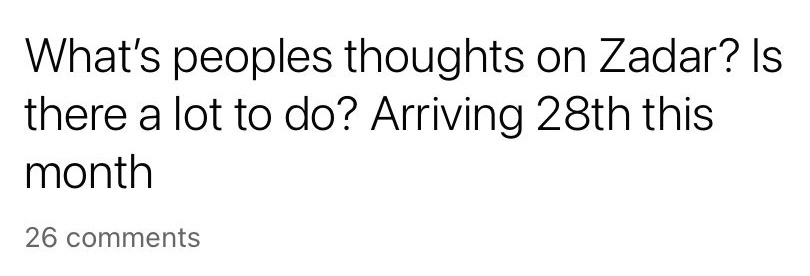
Unfortunately, many Croatian cities are stereotyped and reduced to one or two points of interest. Dubrovnik is its walls and the filming location of Game of Thrones. Split is Diocletian's Palace. Pula is the Roman amphitheater. While none of this is bad, it is true that for many people who stick to their travel itineraries they can come in and say they've seen it all. I don't mean to change their mindset, but although word of mouth can be beneficial, it can also be dangerous if the ''first mouth'' isn't exactly right.
I can say now I've been on both sides. Almost exactly two years ago, my parents were visiting me in Rijeka, where I had just finished my semester of studies. The plan was to give me a lift to our home in Split, and we rented a car in Rijeka. Although it is possible to make the trip to Split on the same day, we decided that we would sleep one night on the way. We chose Zadar. The apartment we rented was in the very heart of Zadar's old town, and we were at the beginning of the coronavirus pandemic. It was a very minimalist trip, and we barely got to know some of the main points of interest around the old town: the sea organ, the Greeting to the Sun, the Roman forum, the church of St. Donatus, and I think that was it.
I wish I could say that the pandemic was a legitimate justification for not exploring more (the infamous tennis tournament organized by Novak Djoković was taking place at that time), but I'm sure that at some point before we resumed the trip to Split we said: ''Ok. We've seen it all''.
Fate brought me back to Zadar two years later, and how wrong I was. I hadn't seen anything.
I have to mention that what you probably already know about Zadar is definitely worth discovering. Watching a sunset from the sea organ and the Greetings to the Sun is not something to be underestimated under any circumstances. In the same way, the history that accompanies the old town through its churches, the Roman forum, the convents, and the city gates deserve all your attention, since we are talking about one of the most important cities in Croatia in terms of history.
If you're not sure what else is there to see, it doesn't hurt to go to a tourist office or ask a local for recommendations. It's different when the person giving you recommendations on places to see or things to do was actually born there. It's already personal. In most cases, they will want to leave a great impression of their hometown and also recommend things that one would not usually see. You must also remember that Croatia is not a country with isolated cities, but that it stands out a lot for its regions as a whole. Administratively speaking, yes, it is true that some cities are better positioned such as Pula, Rijeka, Zadar, Sibenik, Split, or Dubrovnik. But you would be surprised if you knew how much you can find beyond the Roman ruins and beaches in these cities.
Zadar is its Sea Organ, its Roman Forum, the Greetings to the Sun, the Church of St. Donatus, its Franciscan Monastery, and its Old Town.
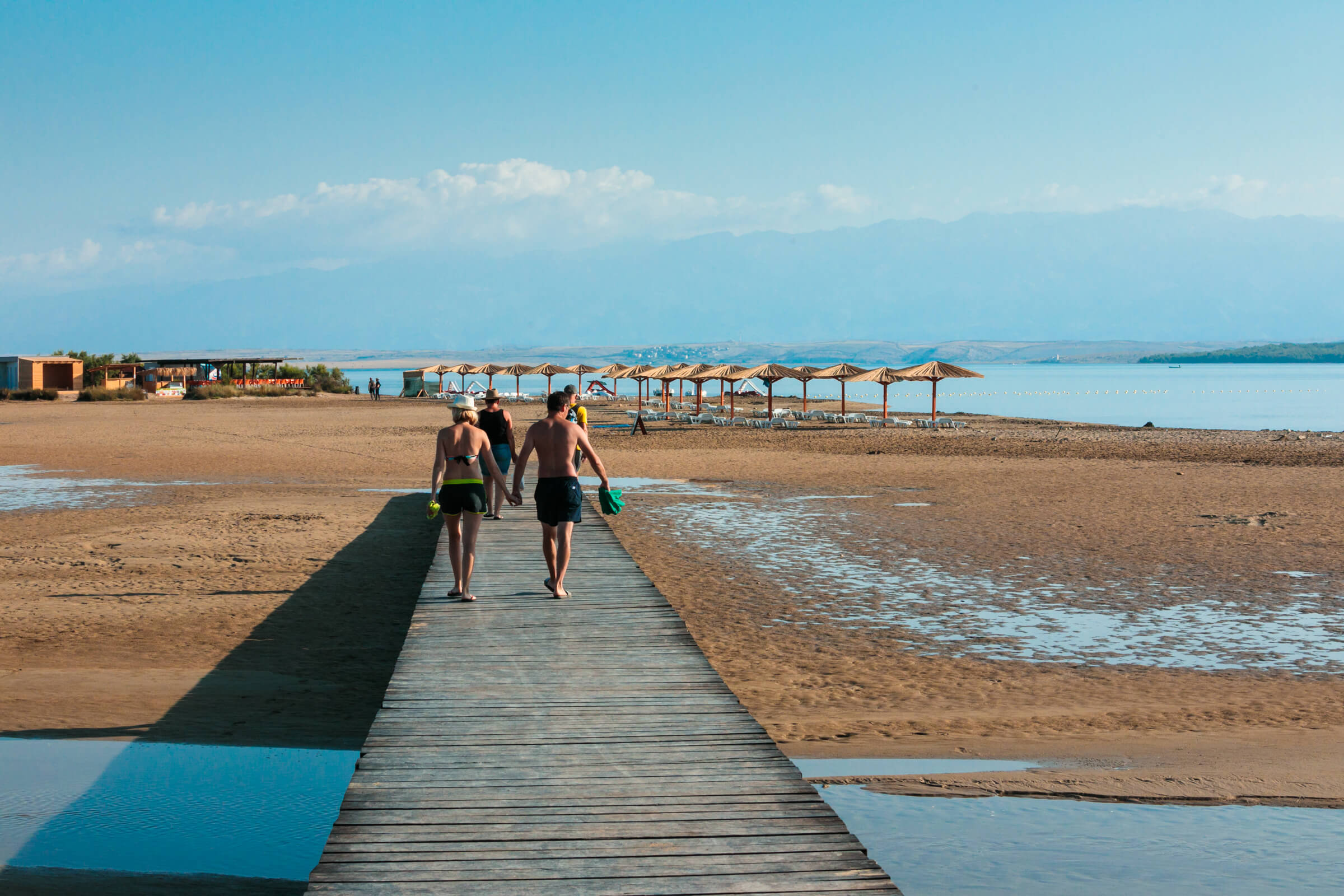
But Zadar is also the historical city of Nin and its healing mud beaches. (Image: Nin Tourist Board)
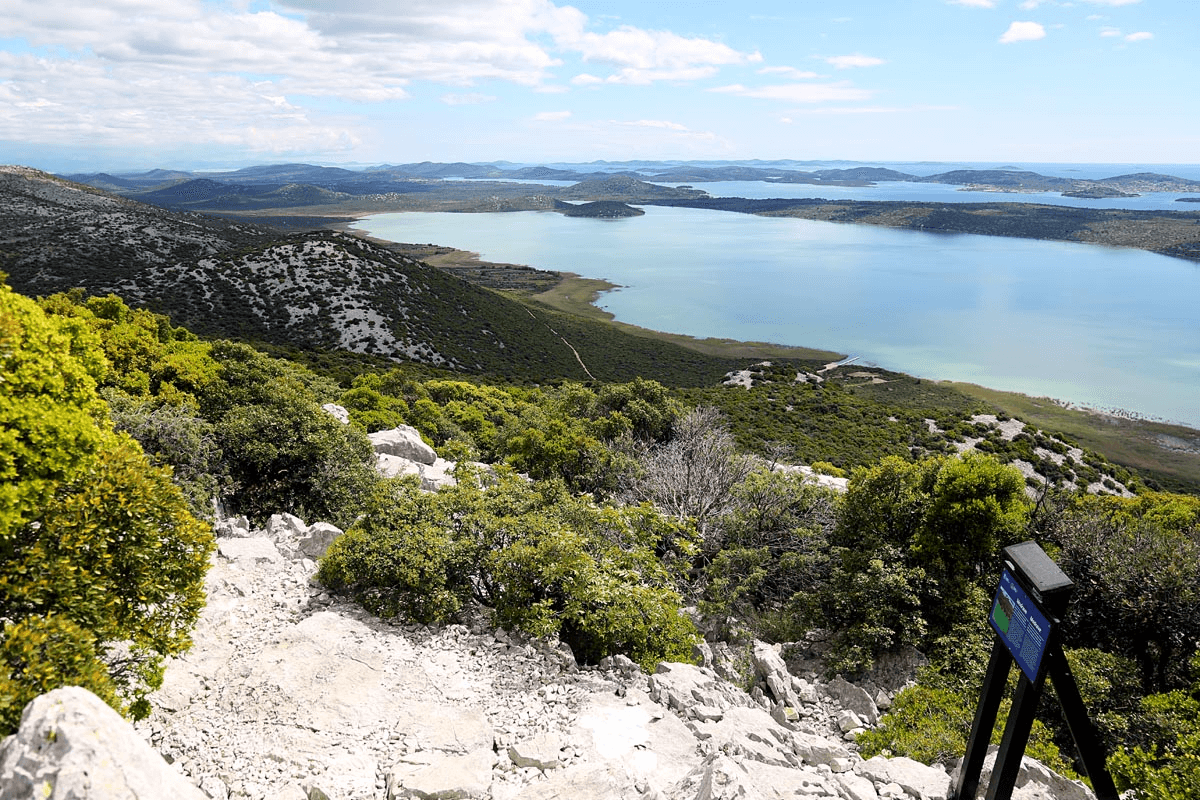
Zadar is the largest lake in Croatia, the Vrana, and its surroundings. (Image: Pakoštane Tourist Board)
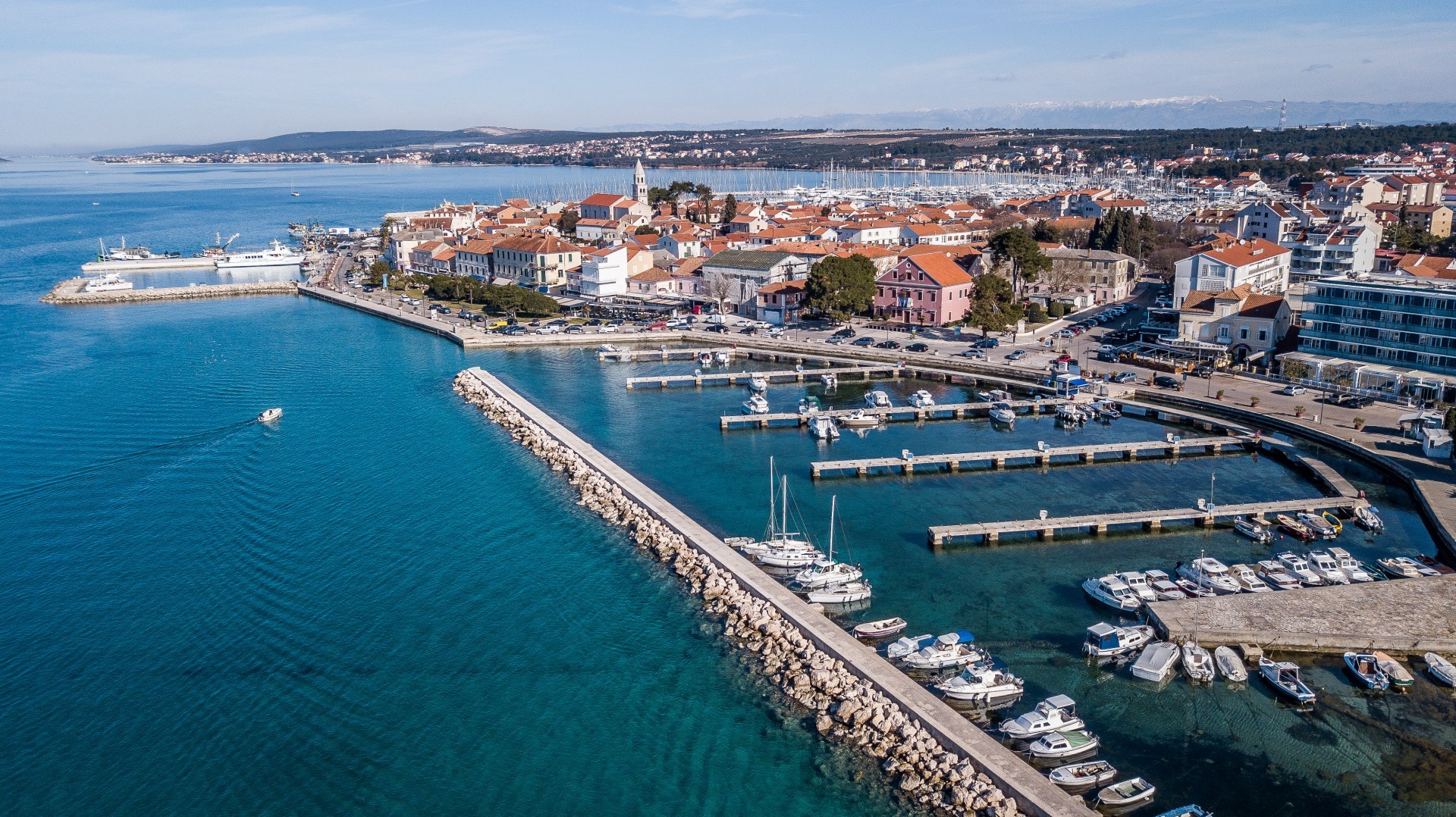
Zadar is the royal city of Biograd na Moru. (Image: Biograd na Moru Tourist Board)
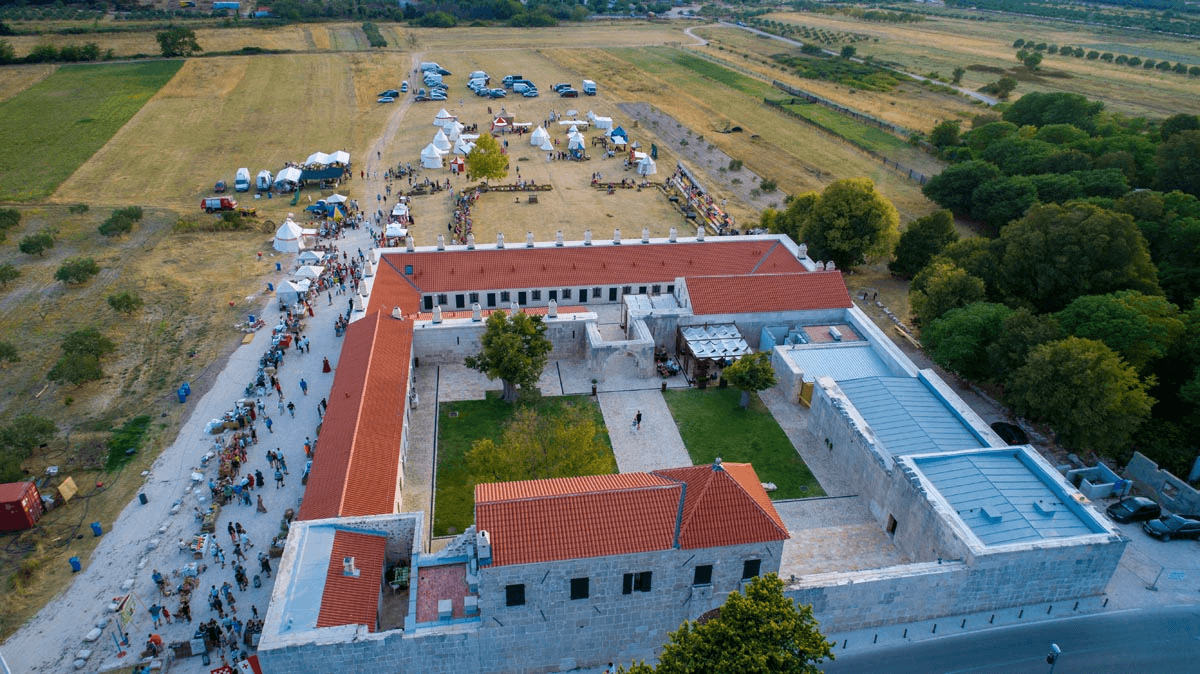
Zadar is the Ottoman residence of Maškovića Han. (Image: maskovicahan.hr)
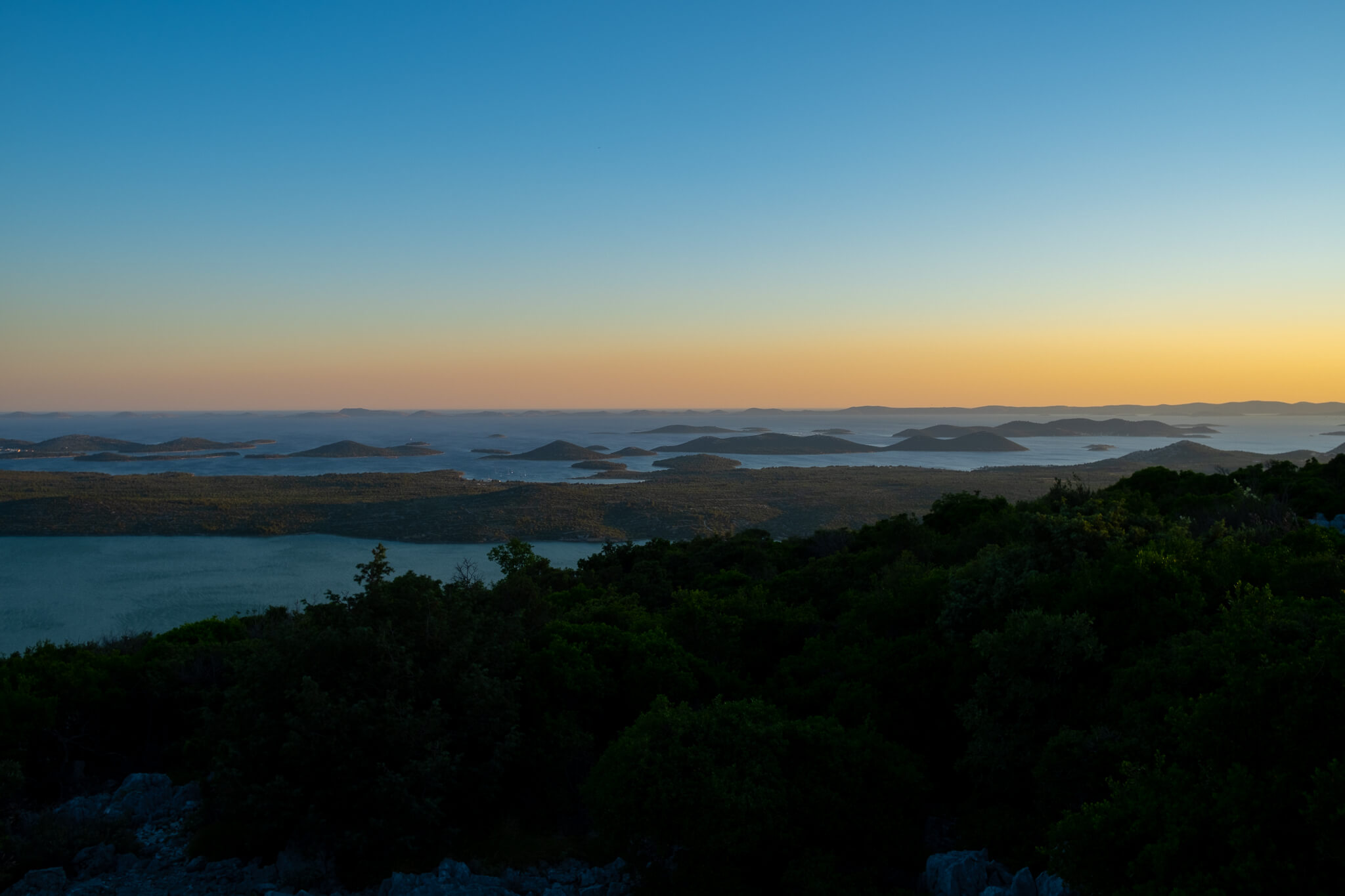
Zadar is the jawdropping views from Vidikovac Kamenjak. (Photo: Jose Alfonso Cussianovich)
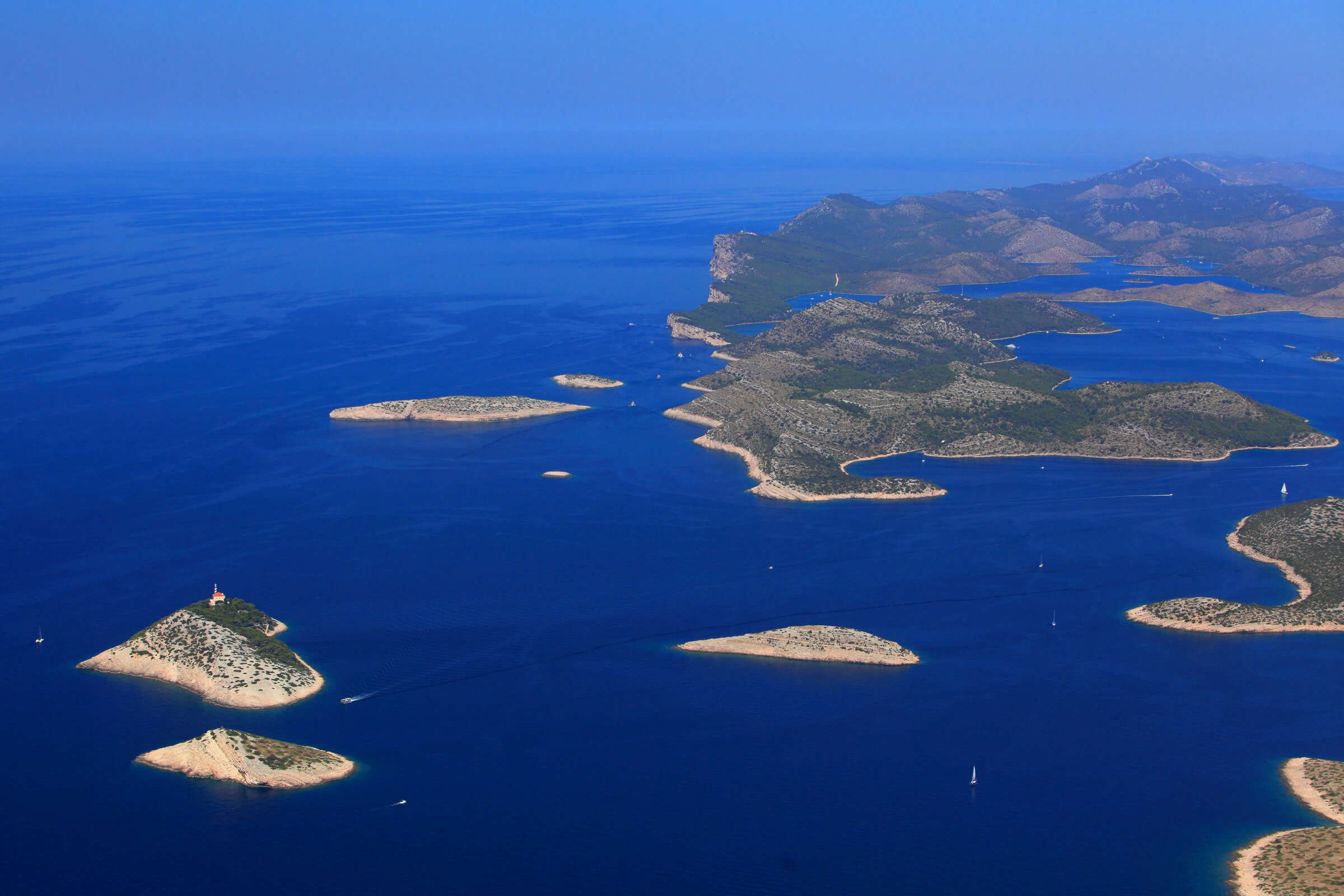
Zadar is sailing through the archipelagos of Kornati and Telašćica. (Photo: Mario Romulic)
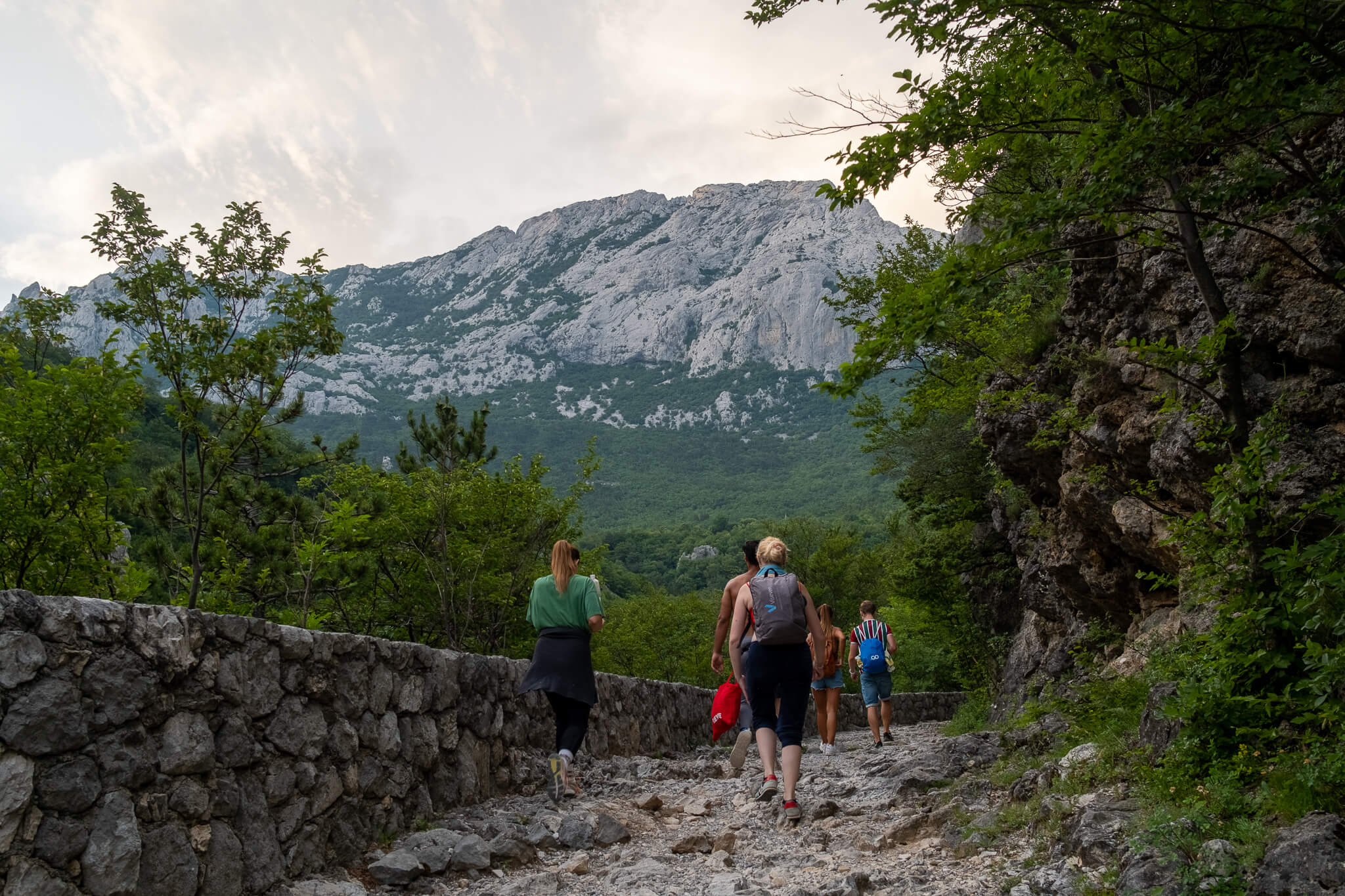
Zadar is reconnecting with the nature of Paklenica. (Photo: Jose Alfonso Cussianovich)
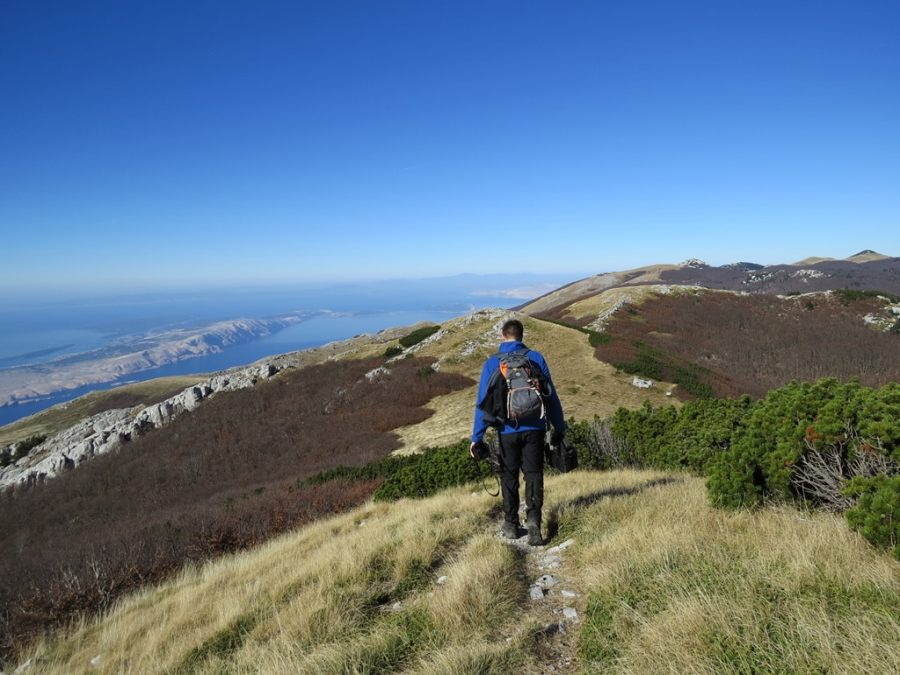
Zadar is hiking in North Velebit National Park. (Image: North Velebit NP)
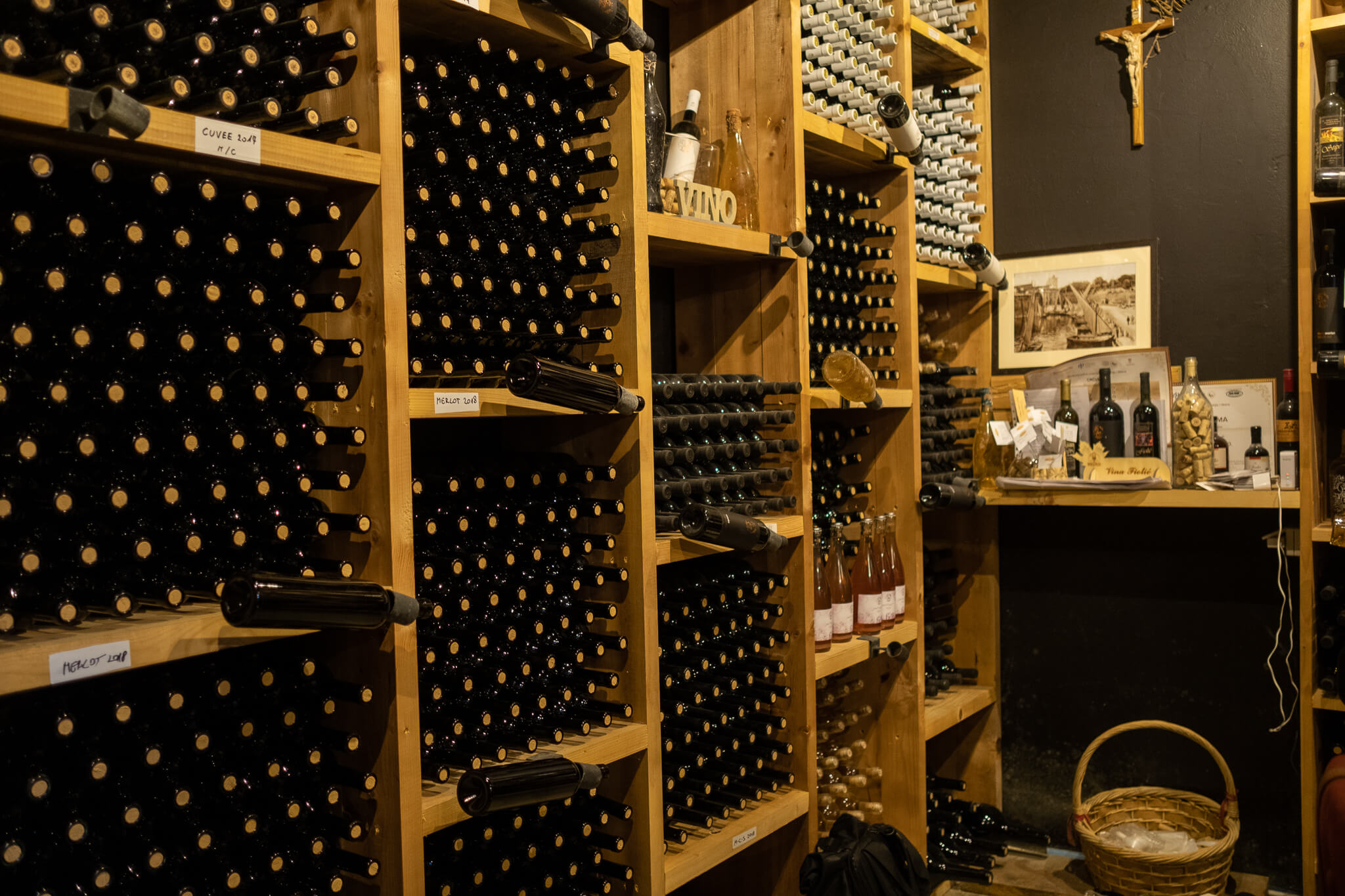
Zadar is tasting internationally recognized wines like those from Fiolić Winery. (Photo: Jose Alfonso Cussianovich)
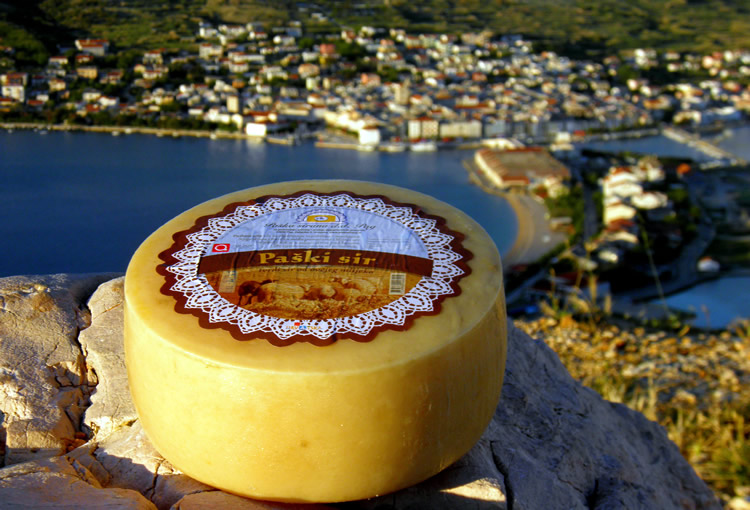
Zadar is trying the famous Pag cheese. (Image: Pag Tourist Board)
Zadar is all that, and much more. In the end, I think the lesson is to dare to look for something different than what we usually see in pamphlets, on TripAdvisor, or in the comments section of a Facebook group.
For more on travel in Croatia, follow TCN's dedicated page.


